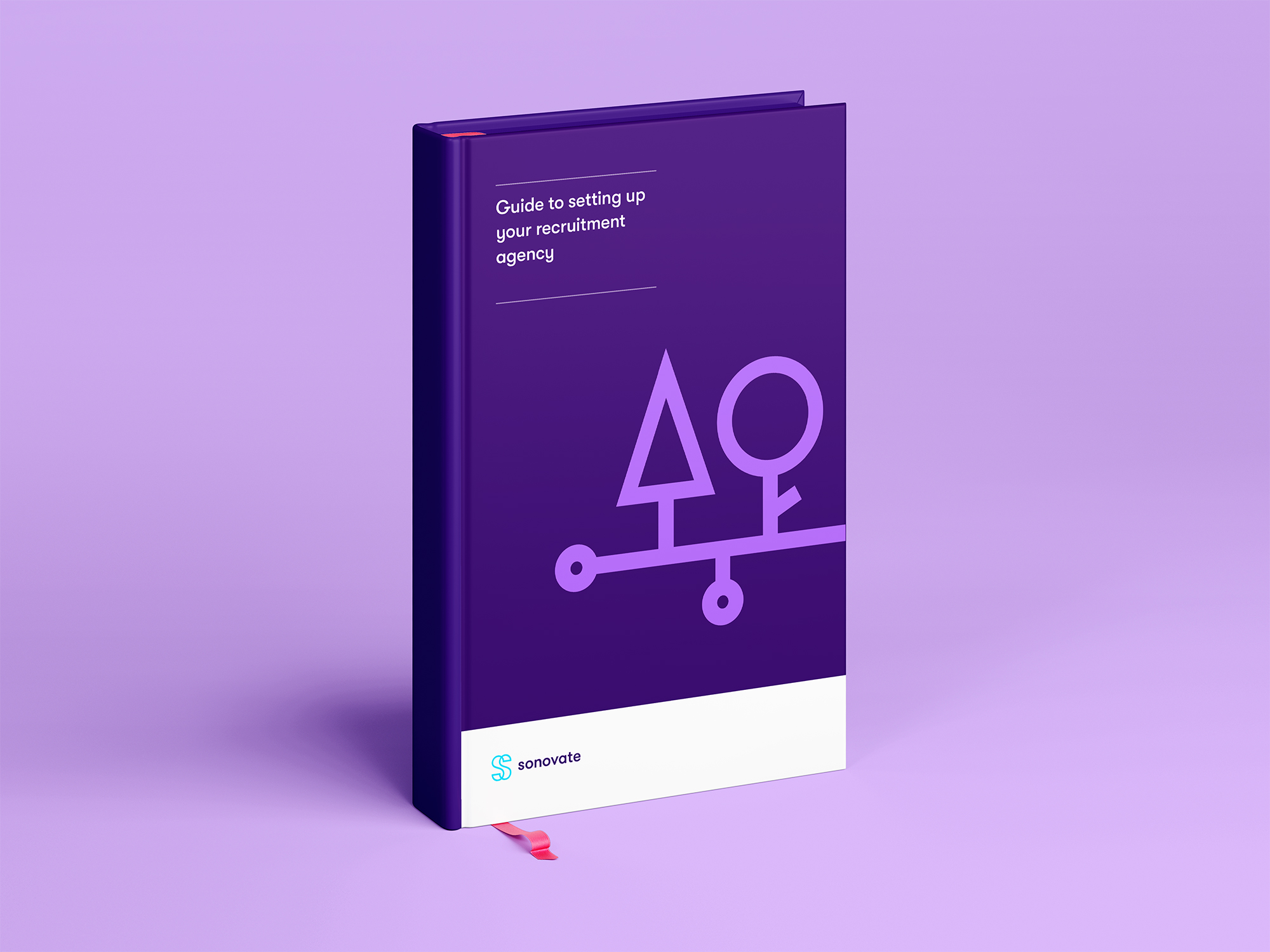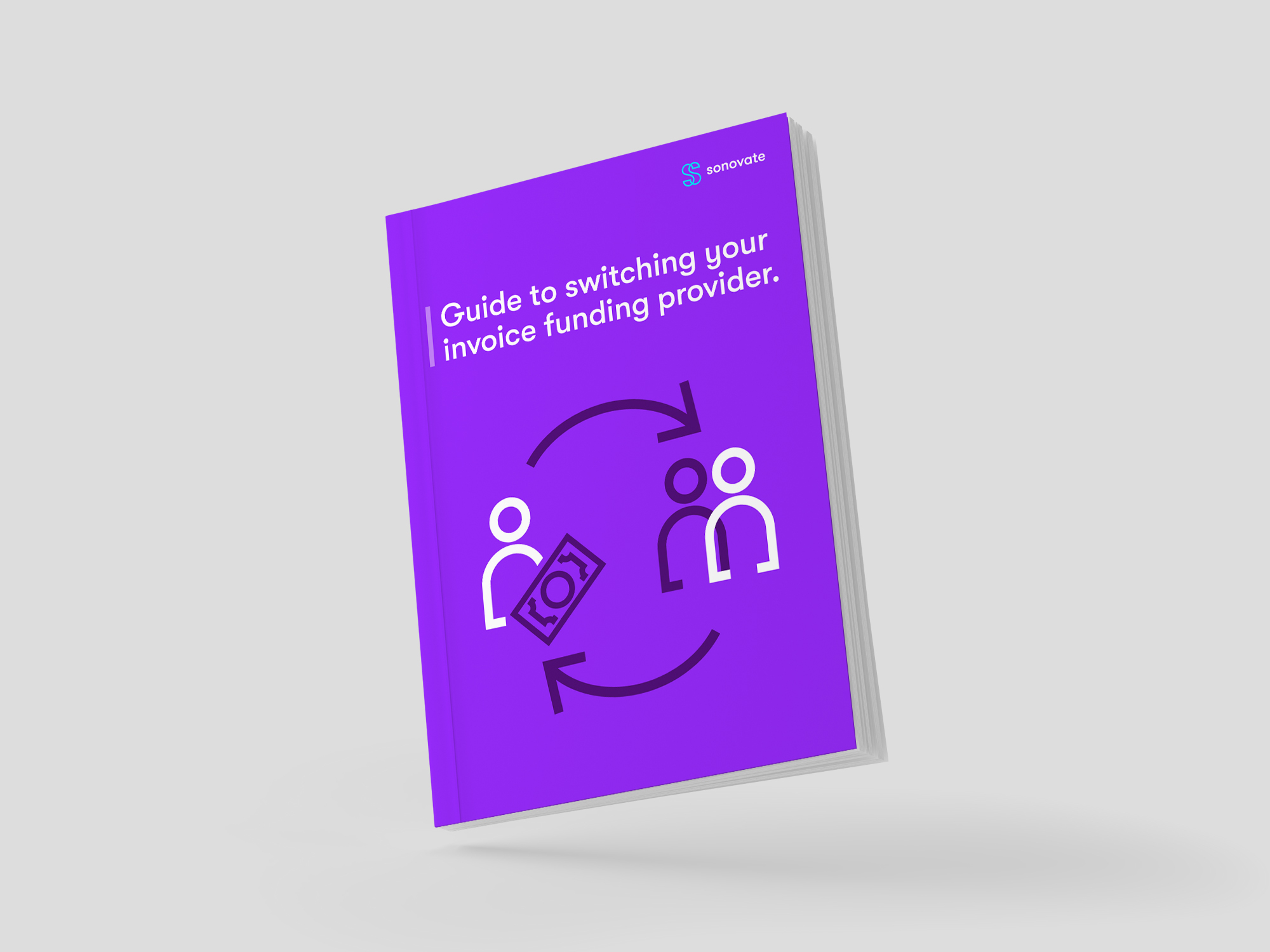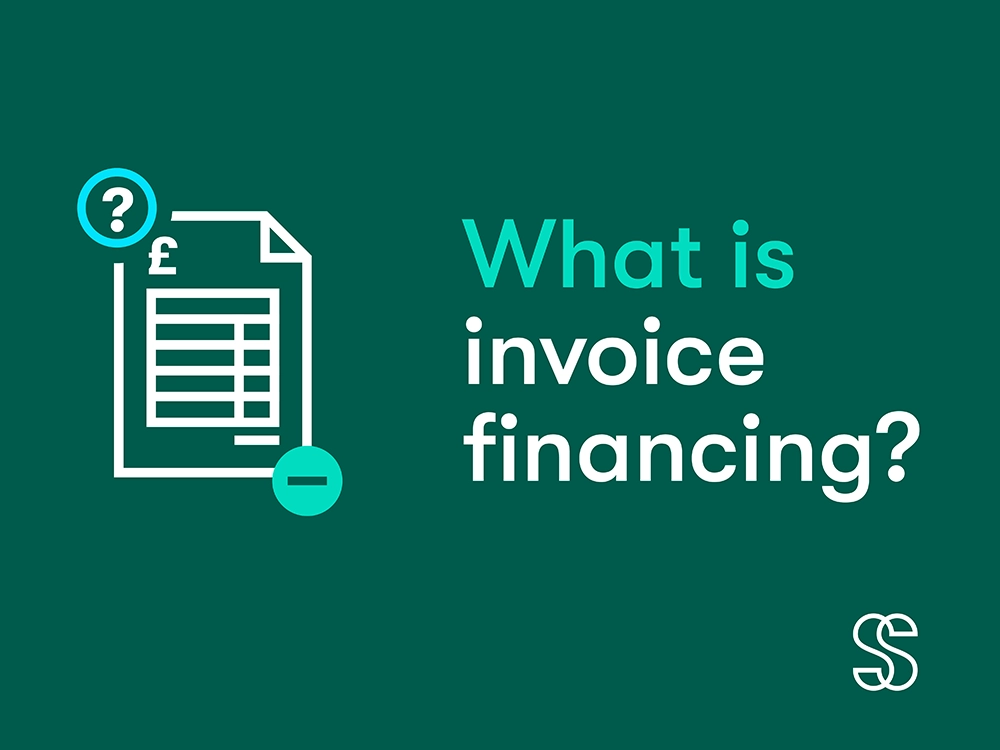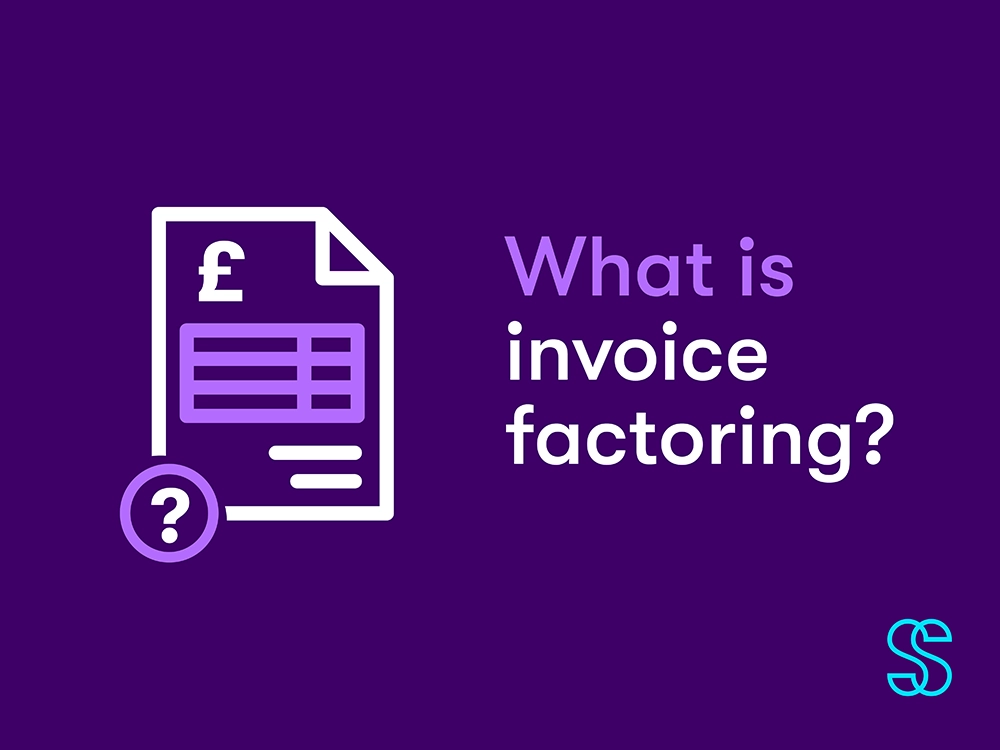Invoice Financing vs Invoice Factoring: What You Need To Know
Invoice finance can be a bit confusing. Essentially, it encompasses various methods by which organisations can access cash from their unpaid invoices. Invoice financing and invoice factoring are two primary types within this category..
In this guide, we explore these two primary forms of invoice finance, explaining what they are, how they’re different, and why they’re beneficial for businesses.
Table of contents:
Introduction What is Invoice Financing? Example of Invoice Financing What is Invoice Factoring? Different Types of Invoice Factoring Example of Invoice Factoring Invoice Financing and Factoring: What’s the Difference? Advantages of Invoice Financing Advantages of Invoice Factoring Disadvantages of Invoice Financing Disadvantages of Invoice Factoring Which Option Is Right For You? Smart Software and Funding: Sonovate’s SolutionWhat is Invoice Financing?
Invoice financing, also known as invoice discounting and accounts receivable financing, involves borrowing money against your company’s outstanding invoices. A discounting company will give you a percentage of the total invoice value in the form of a business loan or line of credit. This is usually around 80-90%. At Sonovate, we provide up to 100% of the value of your outstanding invoices.
When the invoice payment term comes to an end and the client provides the money they owe, your company then repays the lender. You give back the full amount they loaned you, plus the service fees and interest rates that apply. Invoice financing lets your company retain control over your customer communications, withholding the responsibility of payment collection.
Example of Invoice Financing
Jeff runs a recruitment business that focuses on supplying high-level software development candidates. As standard, the company offers clients a two-month grace period for payment, starting the date of the invoice issue.
Recently, the recruitment agency managed to fulfil a significantly large order of £500,000. This amount would be really beneficial for the organisation to have available now as there’s a limited-time opportunity that could take Jeff’s business to a country-wide scale. But, as per the company’s payment terms, the customer must finalise their invoice after eight weeks.
Jeff gets in touch with an invoice discounter and informs them of his accounts receivable of £500,000. The financing facility agrees to lend him the full amount with a 1.5% interest rate and set service charge. Jeff gets instant access to the cash he needs to grow, getting him more wins as the months go by.
After two months pass, Jeff pays back the full £500,000 to the discounting business and has gained a good amount of capital to comfortably pay the additional charges. Throughout the process, Jeff’s customers remain blissfully unaware of any third-party funding arrangements.
What is Invoice Factoring?
Also referred to as factoring and accounts receivable factoring, an invoice factoring service involves selling your unpaid invoices, as well as control of your accounts receivable.
Essentially, you send your outstanding invoice to a factoring company, which then conducts a risk assessment of your customer’s reliability and sends you a pre-agreed percentage of the invoice amount up front. Typically, this stands at around 80-90%. At Sonovate, we typically lend up to 100% of the invoice value for contractor placements.
Once the customer pays their invoice, the finance company gives you the remaining 10-20% of the total, minus the standard service fee. With invoice factoring, you hand over the responsibility of chasing upcoming and late payments to the third-party factoring facility.
Letting lenders take care of customer follow-ups takes the burden off the shoulders of your accounts team and frees up time to focus on more pressing matters. Additionally, this finance method helps improve your cash flow, providing steadier income for your business to invest and grow.
Different Types of Invoice Factoring
Invoice factoring services are flexible, with finance companies offering several variations that your business can choose from. These options include:
- Selective factoring: Individually select the specific invoices you wish to sell to the factoring company. This process is also known as spot factoring.
- Recourse factoring: You give the factoring facility full liability of invoices, so if customers don’t finalise their payment, it’s not an issue for your company. With this option it is often advisable to take out bad debt protection. At Sonovate, we offer 95% bad debt protection as standard.
- Non-recourse factoring: Still receive capital for your unpaid agreements, but when non-payments occur, you assume liability of those invoices.
- Notification factoring: As standard practice, customers receive a notification that a third party is involved in collections.
- Non-notification: For an additional fee, you can ensure your customers aren’t informed of third-party involvement, in which case the invoice factoring process takes place under your company name.
Example of Invoice Factoring
Sarah manages a successful consultancy firm that places contractors in various industries. Sarah’s consultancy business has been experiencing consistent issues with cash flow stability as payments don’t come in when they’re needed most. To relieve this problem and maintain a smooth business operation, Sarah gets in contact with a trusted and established factoring facility.
Sarah agrees on a 90% advance percentage and sells an invoice worth £20,000 to the factoring business. The company processes the invoice, and since 10% off is equal to £2,000, it immediately sends the advance of £18,000 to Sarah.
As part of the agreement, if clients are late to their payment terms, the invoice providers are required to follow this up on Sarah’s behalf.
When the invoice gets finalised, the cash is directly sent to the debt factoring facility, at which point Sarah receives the remaining £2,000 minus the company’s service charge. From the £20,000 that Sarah sold, she would pay £800 for a 4% service fee in exchange for instant access to the cash she’s owed.
Invoice Financing and Factoring: What’s the Difference?
Covered by the umbrella term ‘invoice finance’, invoice financing (or discounting) and invoice factoring are two separate types of asset-based financing. It’s easier to identify similarities between financing and factoring than differences, as the two finance options enable businesses to gain access to instant funds in exchange for their unpaid invoices and a small service charge.
Invoice financing acts as a type of loan that uses your invoices as collateral, whereas debt factoring involves selling your invoices as a product. The difference essentially boils down to the collection of outstanding invoices. With discounting services, you are responsible for contacting your own customers for payment. However, invoice factoring involves selling your unpaid agreements to a financing company, which puts them in control of chasing your customers’ payment collections. In other words, you give up ownership of the invoice, which is a substantial deviation from traditional invoice financing.
Whether maintaining or withdrawing responsibility for invoices is good for your business will depend on your individual needs. If your accounts team is under regular pressure and chasing up customers is just another time-consuming task on your employees’ plate, eliminating the hassle of payment collection could reduce stress and boost morale. On the other hand, you may feel that you want to maintain control over client communications to remain present and guarantee quality customer service.
Another key difference is confidentiality. With debt factoring, customers will know that your company is using third-party funding services as they pay their invoices directly to the financing facility. In contrast, discounting stays completely between your business and the invoice financing company.
Cost is another differing factor. With invoice financing, you’ll typically only need to pay a 3-5% fee, so your business retains most of the invoice value. Invoice factoring is a more costly approach. In more extreme cases, you could pay up to 15% of the total invoice value. However, it’s possible to lower these fees with a long-term contract.
Advantages of Invoice Financing
Invoice financing offers a variety of benefits for businesses, including:
Better Working Capital
With immediate access to capital, businesses get the necessary resources to pay off bills and expenses, while making valuable investments to facilitate expansion. Enhanced working capital will help you obtain the funds to complete projects on time, build your workforce and grow your business to new heights.
Confidential Funding Solution
Invoice discounting is entirely private and confidential, so customers won’t be aware that you’re borrowing against their invoices. There’s always a risk that clients will interpret third-party finance companies as a negative sign regarding the stability of your business.
Control Over Invoices
Payment collections involve a lot of interaction with your customers. An invoice financing facility won’t get involved in this, empowering you to manage your own credit control and debt collection for customer accounts. This helps you build and sustain relationships with your stakeholders.
Advantages of Invoice Factoring
Debt factoring also has its perks that business owners can utilise, such as:
Improved Cash Flow
One of the most prominent reasons businesses factor their invoices is to enhance their cash flow. Debt factoring enables organisations to gain cash instantly, allowing them to cover costs without the wait for customer payments. In addition, factoring companies can sometimes let you negotiate with your suppliers, so you get better value for money.
Payments Chased For You
Factoring companies will take care of your sales ledger to relieve your team of collections responsibilities. These services can mitigate the risk of late payment or non-payment as thorough credit checks mean you’re more likely to trade with customers that pay on time, and they may prove more efficient than your internal team at chasing customers.
Disadvantages of Invoice Financing
It’s equally important to assess the risks associated with invoice finance before getting started. Here are some elements to consider for invoice discounting:
Credit Collection Requirements
To be accepted by an invoice discounting lender, you’ll likely need an established in-house credit collection process.
High Net Worth Expectations
Some invoice financing companies, particularly banks and other traditional funders, only agree to work with organisations that have a minimum turnover of £100,000, alongside a proven positive net worth.
Want to speak to an expert about what’s best for your business? Request a call back today.
Disadvantages of Invoice Factoring
The disadvantages of invoice factoring include:
Customers’ Awareness of Third-Party Services
As standard practice, your customers are made aware that you’re partnering with third-party funding solutions. Clients may presume that your business isn’t stable as a result, which could impact your working customer relationships.
Less Control
It’s not possible to control your factoring company’s chasing methods. If it’s notably different to your approach, it could damage your reputation with customers.
Pricey Option
Factoring services cost more than discounting options as finance facilities assume responsibility over customer payments and you get less return for your invoice.
Want to speak to an expert about what’s best for your business? Request a call back today.
Which Option Is Right For You?
Both invoice financing and invoice factoring let business owners gain access to working capital and improve their cash flow. But how do you know which option is best suited to your organisation?
Both invoice financing and invoice factoring are ideal for B2B businesses that assign invoices with payment terms that take weeks or months to pay off. Equally, a smaller business or startup that requires steady income to stay afloat would greatly benefit from these services.
Ultimately, finding the right invoice finance solution for your business depends on the state of your organisation. For example, debt factoring is more beneficial for larger corporations with more intense workloads. However, invoice financing is more suited to smaller companies as costs are cheaper and they remain in full control of their customer payments. There are exceptions to take note of. If your business needs a financing source that’s ongoing, invoice factoring could be the correct decision, regardless of your business size.
Certain industries tend to utilise invoice finance more than others. Some of the main business types using these solutions include:
- Recruitment
- Consulting
- Manufacturing
- Logistics
- Transport
- Security
Smart Software and Funding: Sonovate’s Solution
When searching for an invoice finance company, it’s crucial to ensure you don’t get hit with unexpected fees concealed behind a strikingly good offer. At Sonovate, we have nothing to hide. We understand that businesses value transparency. That’s why we guarantee there are no hidden fees for our customers.
We provide cash flow solutions to thousands of businesses across the U.K., especially in the recruitment sector. Our software is designed to reduce admin and save time, so you can focus on business growth. Our all-in-one funding and back-office platform gives you flexibility when you need it.
Take a look at the businesses we’ve helped succeed in the past few years. With Sonovate, you get:
- A simple setup process.
- No lengthy contract commitments.
- No imposed credit limits.
- Inclusive bad debt protection.
Discover more about our intelligent software by booking a demo today!
Book your demo






